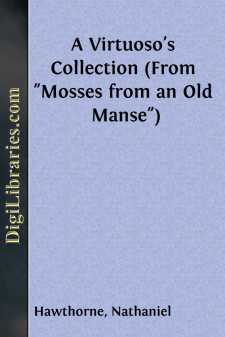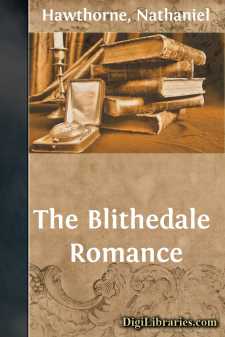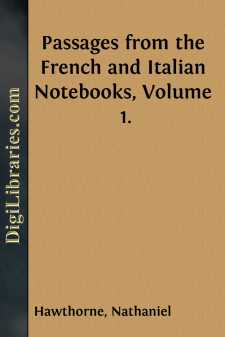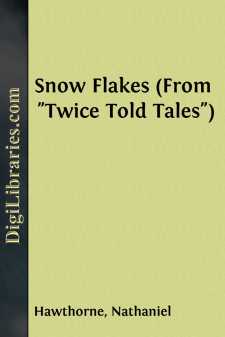Categories
- Antiques & Collectibles 13
- Architecture 36
- Art 48
- Bibles 22
- Biography & Autobiography 813
- Body, Mind & Spirit 142
- Business & Economics 28
- Children's Books 15
- Children's Fiction 12
- Computers 4
- Cooking 94
- Crafts & Hobbies 4
- Drama 346
- Education 46
- Family & Relationships 57
- Fiction 11829
- Games 19
- Gardening 17
- Health & Fitness 34
- History 1377
- House & Home 1
- Humor 147
- Juvenile Fiction 1873
- Juvenile Nonfiction 202
- Language Arts & Disciplines 88
- Law 16
- Literary Collections 686
- Literary Criticism 179
- Mathematics 13
- Medical 41
- Music 40
- Nature 179
- Non-Classifiable 1768
- Performing Arts 7
- Periodicals 1453
- Philosophy 64
- Photography 2
- Poetry 896
- Political Science 203
- Psychology 42
- Reference 154
- Religion 513
- Science 126
- Self-Help 84
- Social Science 81
- Sports & Recreation 34
- Study Aids 3
- Technology & Engineering 59
- Transportation 23
- Travel 463
- True Crime 29
A Virtuoso's Collection (From "Mosses from an Old Manse")
Categories:
Description:
Excerpt
The other day, having a leisure hour at my disposal, I stepped into a new museum, to which my notice was casually drawn by a small and unobtrusive sign: "TO BE SEEN HERE, A VIRTUOSO'S COLLECTION." Such was the simple yet not altogether unpromising announcement that turned my steps aside for a little while from the sunny sidewalk of our principal thoroughfare. Mounting a sombre staircase, I pushed open a door at its summit, and found myself in the presence of a person, who mentioned the moderate sum that would entitle me to admittance.
"Three shillings, Massachusetts tenor," said he. "No, I mean half a dollar, as you reckon in these days."
While searching my pocket for the coin I glanced at the doorkeeper, the marked character and individuality of whose aspect encouraged me to expect something not quite in the ordinary way. He wore an old-fashioned great-coat, much faded, within which his meagre person was so completely enveloped that the rest of his attire was undistinguishable. But his visage was remarkably wind-flushed, sunburnt, and weather-worn, and had a most, unquiet, nervous, and apprehensive expression. It seemed as if this man had some all-important object in view, some point of deepest interest to be decided, some momentous question to ask, might he but hope for a reply. As it was evident, however, that I could have nothing to do with his private affairs, I passed through an open doorway, which admitted me into the extensive hall of the museum.
Directly in front of the portal was the bronze statue of a youth with winged feet. He was represented in the act of flitting away from earth, yet wore such a look of earnest invitation that it impressed me like a summons to enter the hall.
"It is the original statue of Opportunity, by the ancient sculptor Lysippus," said a gentleman who now approached me. "I place it at the entrance of my museum, because it is not at all times that one can gain admittance to such a collection."
The speaker was a middle-aged person, of whom it was not easy to determine whether he had spent his life as a scholar or as a man of action; in truth, all outward and obvious peculiarities had been worn away by an extensive and promiscuous intercourse with the world. There was no mark about him of profession, individual habits, or scarcely of country; although his dark complexion and high features made me conjecture that he was a native of some southern clime of Europe. At all events, he was evidently the virtuoso in person.
"With your permission," said he, "as we have no descriptive catalogue, I will accompany you through the museum and point out whatever may be most worthy of attention. In the first place, here is a choice collection of stuffed animals."
Nearest the door stood the outward semblance of a wolf, exquisitely prepared, it is true, and showing a very wolfish fierceness in the large glass eyes which were inserted into its wild and crafty head. Still it was merely the skin of a wolf, with nothing to distinguish it from other individuals of that unlovely breed.
"How does this animal deserve a place in your collection?" inquired I.
"It is the wolf that devoured Little Red Riding Hood," answered the virtuoso; "and by his sideâwith a milder and more matronly look, as you perceiveâstands the she-wolf that suckled Romulus and Remus."
"Ah, indeed!" exclaimed I. "And what lovely lamb is this with the snow-white fleece, which seems to be of as delicate a texture as innocence itself?"
"Methinks you have but carelessly read Spenser," replied my guide, "or you would at once recognize the 'milk-white lamb' which Una led....












